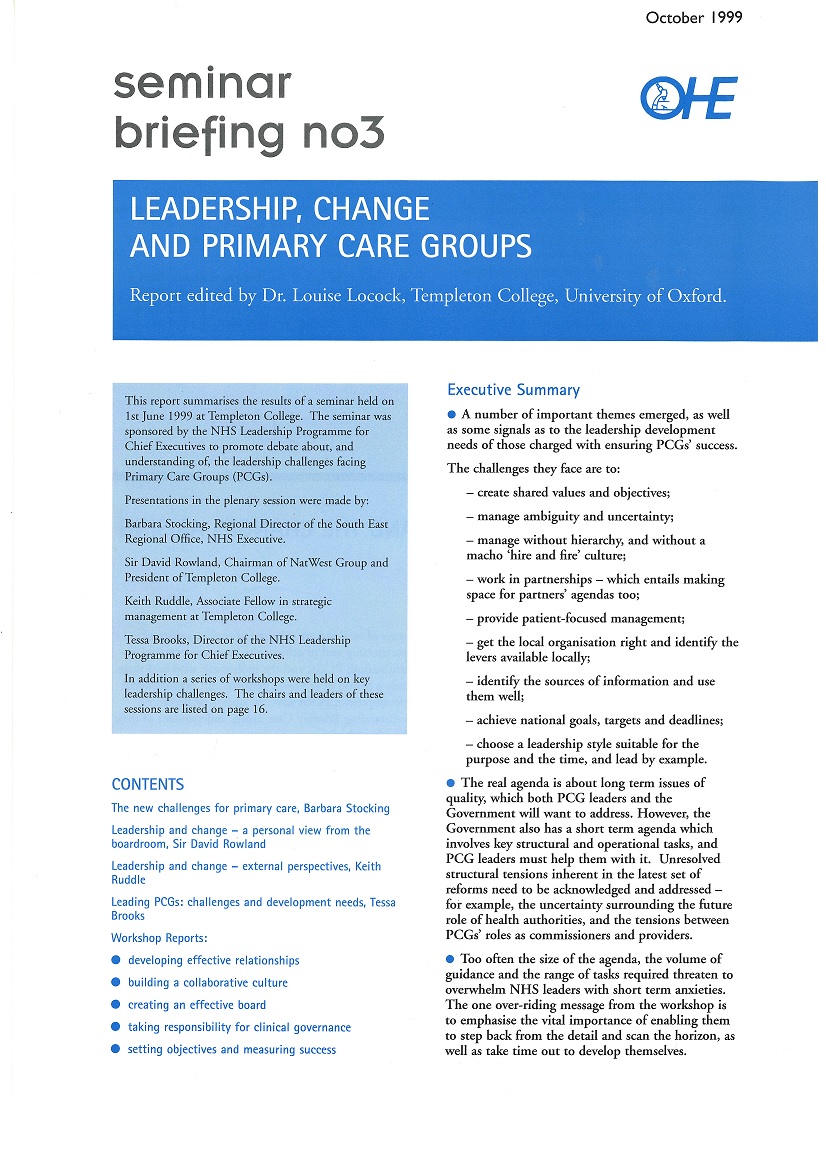A number of important themes emerged, as well as some signals as to the leadership development needs of those charged with ensuring PCGs’ success.
They challenges they face are to:
- Create shared values and objectives;
- Manage ambiguity and uncertainty;
- Manage without hierarchy, and without a macho ‘hire and fire’ culture;
- Work in partnership – which entails making space for partners’ agendas too;
- Provide patient-focused management;
- Get the local organisation right and identify the levers available locally;
- Identify the sources of information and use them well;
- Achieve national goals, targets and deadlines;
- Choose a leadership style suitable for the purpose and the time and lead by example.
- The real agenda is about the long term issues of quality, which both PCG leaders and the Government will want to address. However, the Government also has a short tern agenda which involves key structural and operational tasks, and PCG leaders must help them with it. Unresolved structural tensions inherent in the latest set of reforms need to be acknowledged and addressed – for example, the uncertainty surrounding the future role of health authorities, and the tensions between PCGs’ roles as commissioners and providers.
- Too often the size of the agenda, the volume of guidance and the range of tasks required threaten to overwhelm the NHS leaders with short term anxieties. The one over-riding message from the workshop is to emphasise the vital importance of enabling them to step back from the details and scan the horizon, as well as take time out to develop themselves.
- To assist the NHSE leadership programme the worshop helped identify a variety of needs to be addressed. These range from the basic technical and managerial skills required to manage boards, where sharing good practice has a strong role to play, to the need for higher level reflection on the nature of leadership, strategy, partnership, culture and motivation. There was consensus that PCG leaders need both; they urgently need help with practical skills, and with developing their understanding of issues such as team building and performance management. However, in meetings the immediate requirements of organisation change, it was important they keep sight of the underlying, longer term, NHS agenda.
- If PCGs are to ‘make a difference’ to the health of the population, and work across traditional boundaries between groups within the NHS, between agencies, and between professional and patient, there is a need for substantial additional development and learning.
- PCG leaders could benefit enormously from alternative perspectives on leadership that others can offer, from within the NHS, from other public services, and from the private sector. However, the experience of others cannot be lifted directly into a PCG setting. On the contrary, workshop participants emphasised the importance of cultural sensitivity and the need for leaders to reflect on the appropriateness of leadership experiences from elsewhere and on the different theories is needed to find locally appropriate solutions.
- Despite the size of the challenges ahead, there is considerable optimism about the future for PCGs and the contribution they can make to health and health care. This report helps identify ways in which those leading PCGs can best be supported in helping PCGs achieve their goals.

